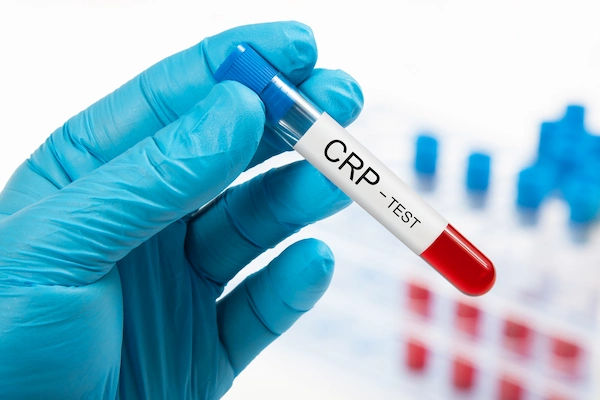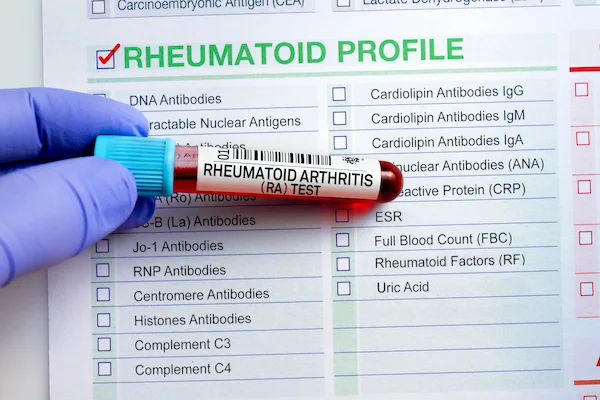High WBC Count in CBC Test: What It Means & When to Worry?
Know the significance of WBC in the CBC test. Levels and causes of high WBC and high WBC in viral and bacterial infections.

Written by Dr. Rohinipriyanka Pondugula
Reviewed by Dr. D Bhanu Prakash MBBS, AFIH, Advanced certificate in critical care medicine, Fellowship in critical care medicine
Last updated on 9th Sep, 2025
_0.webp?tr=q-80,f-webp,w-350,dpr-2,c-at_max 700w)
White blood cells (WBCs) are the body's frontline defence against infections. When your immune system detects an invader, be it a virus, bacteria, or allergen, it mobilises WBCs to protect you. This makes the CBC test, or Complete Blood Count, one of the most useful tools in identifying what’s going on inside your body during an illness.
If you or a family member recently had a high WBC count in a CBC test, it's natural to be concerned. Is it just a mild viral illness, or does it suggest a serious bacterial infection? Could it point to something more chronic or systemic? In this detailed guide, we’ll explore everything you need to know about high white blood cell counts in a blood test, from causes and implications to the next steps. We’ll also help you understand how to differentiate between a viral and bacterial infection in a blood test, and when it’s time to follow up with more tests.
Why WBC Count Is Measured in a CBC Test?
The CBC test is a comprehensive blood panel that measures several critical parameters, including:
- White Blood Cells (WBCs): immunity cells
- Red Blood Cells (RBCs): oxygen transporters
- Platelets: clotting elements
- Haemoglobin and Haematocrit: indicators of anaemia or blood loss
Out of all these, a raised WBC count often draws the most attention—especially when it comes to infection in a blood test. It can point toward the presence of an acute or chronic illness and help guide clinical decisions.
You can book a CBC test with home sample collection from Apollo 24|7 Lab Tests – CBC Test.
What Is Considered a High WBC Count?
In most laboratories, the normal range of WBCs in adults is approximately 4,000 to 11,000 cells per microlitre of blood. A WBC count above this range is termed leukocytosis.
Note: Normal values may slightly differ between labs. Always check the lab-specific reference range.
Causes of High WBC Count in CBC Test
A high WBC CBC test result doesn't always mean you have a serious illness, but it is a signal that something is triggering your immune system. Common causes include:
1. Infections
- Bacterial Infections (e.g., pneumonia, tonsillitis, UTI)
- Viral Infections (e.g., COVID-19, flu, dengue)
- Fungal or Parasitic Infections
2. Inflammatory Conditions
- Autoimmune diseases like rheumatoid arthritis or lupus
- Allergic reactions (asthma, hay fever)
3. Stress Response
- Physical stress from injury, surgery, or trauma
- Emotional stress may also slightly increase WBCs
4. Medications
- Corticosteroids and beta-agonists can artificially elevate WBCs
5. Leukaemia or Blood Cancers
- Very high WBC counts (above 50,000) may suggest haematological malignancy
- Accompanied by symptoms like fatigue, weight loss, or bruising
These Tests To Check Your CBC & WBC Count
High WBC Count: Viral vs Bacterial Infection
One of the most valuable insights from a CBC test with high WBC is whether the infection is likely viral or bacterial. This helps your doctor decide if antibiotics are needed—or not.
1. Bacterial Infection Indicators:
- High total WBC count
- Neutrophilia (elevated neutrophils): Your body sends more of these "first responders" to fight bacteria.
- Possible presence of band cells (immature neutrophils)
Infection in blood test example: A patient with a WBC count of 16,000/µL and 80% neutrophils may be battling a bacterial infection like pneumonia or appendicitis.
2. Viral Infection Indicators:
- Mild to moderate increase in total WBC count
- Lymphocytosis (increased lymphocytes): These fight viruses.
- CRP and ESR may be only mildly elevated or normal
Infection in blood test example: A WBC count of 11,500/µL with 45% lymphocytes could point towards a viral illness like dengue or influenza.
What to Do If You Have a High WBC Count?
Here’s a step-by-step approach to understanding and acting on your high WBC CBC test result:
Step 1: Review the Differential Count
- Ask your doctor to check the differential WBC count, which shows the proportions of different white cells: neutrophils, lymphocytes, monocytes, eosinophils, and basophils.
Step 2: Correlate with Symptoms
- Fever, chills, and body aches: Likely infection.
- Cough or chest pain: Consider pneumonia or respiratory infection.
- Abdominal pain or diarrhoea: Gastrointestinal cause.
- Skin rashes or joint pain: May be inflammatory or autoimmune.
Step 3: Take Supporting Tests
Depending on symptoms, your doctor may advise:
- CRP test: To confirm bacterial inflammation
- Blood or urine cultures: To detect bacterial growth
- Chest X-ray: If a lung infection is suspected
- Dengue, Malaria, or Typhoid tests: For tropical infections
- COVID-19 RT-PCR: If symptoms suggest coronavirus
Book relevant infection panels from Apollo 24|7 Lab Tests such as:
When Should You Be Concerned?
While mild to moderate WBC elevations can often be explained by infections, the following red flags require urgent attention:
In such cases, your doctor may advise advanced tests such as:
- Peripheral smear examination
- Bone marrow biopsy
- Flow cytometry or genetic testing
How Long Does a High WBC Count Last?
The duration of elevated WBCs depends on the cause:
- Acute infections: Levels normalise within 3 to 7 days after treatment
- Chronic inflammation: WBCs may stay elevated for weeks
- Haematological disorders: Persistently high counts that do not resolve without targeted therapy
Who Is at Higher Risk for Infections and High WBC?
Some individuals are more prone to infections and should take a CBC test regularly, especially if they show signs like frequent fevers or fatigue. High-risk groups include:
- Children and elderly individuals
- People with diabetes or kidney disease
- Cancer patients on chemotherapy
- Those taking steroids or immunosuppressive drugs
- People with poor nutrition or low immunity
How Often Should You Monitor WBC Count?
If you're infection-prone, it's wise to:
- Do a CBC every 3 to 6 months if you have chronic conditions
- Repeat WBC counts after any serious illness or infection
- Monitor levels if you're on long-term immunosuppressants
You can schedule regular health checks via Apollo 24|7 Lab Packages and even choose home sample collection for convenience.
Book a Apollo 24|7 Lab Packages
Can Diet or Lifestyle Affect WBC Levels?
Yes. While infections and illness are the main drivers, certain lifestyle habits can also influence your immune health:
- Smoking: Raises WBC levels due to chronic inflammation
- Obesity: Linked with elevated WBCs due to low-grade inflammation
- Stress: Both physical and emotional stress can temporarily raise WBCs
- Exercise: Vigorous exercise may temporarily increase WBCs
Conclusion
A high white blood cell (WBC) count in your CBC test isn't always a cause for alarm, but it does signal that your body is reacting to an infection, inflammation, or another underlying issue. Rather than panicking, it’s essential to understand what might be triggering this immune response. Supporting tests like CRP, blood cultures, or infection-specific screenings can provide greater clarity and help guide appropriate treatment.
Persistent elevations should never be ignored, and self-medication, especially with antibiotics, can do moreharm than good. Always consult a qualified doctor for proper diagnosis and care. If your report shows high WBCs, act promptly. With Apollo 24|7, you can access reliable lab testing, certified reports, and convenient home sample collection, making it easier to get the answers you need, when you need them most.


.webp)

.webp)

